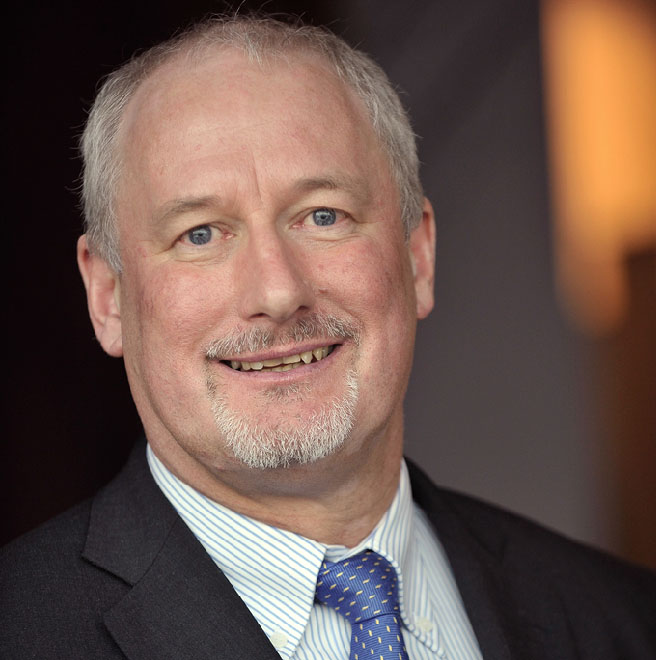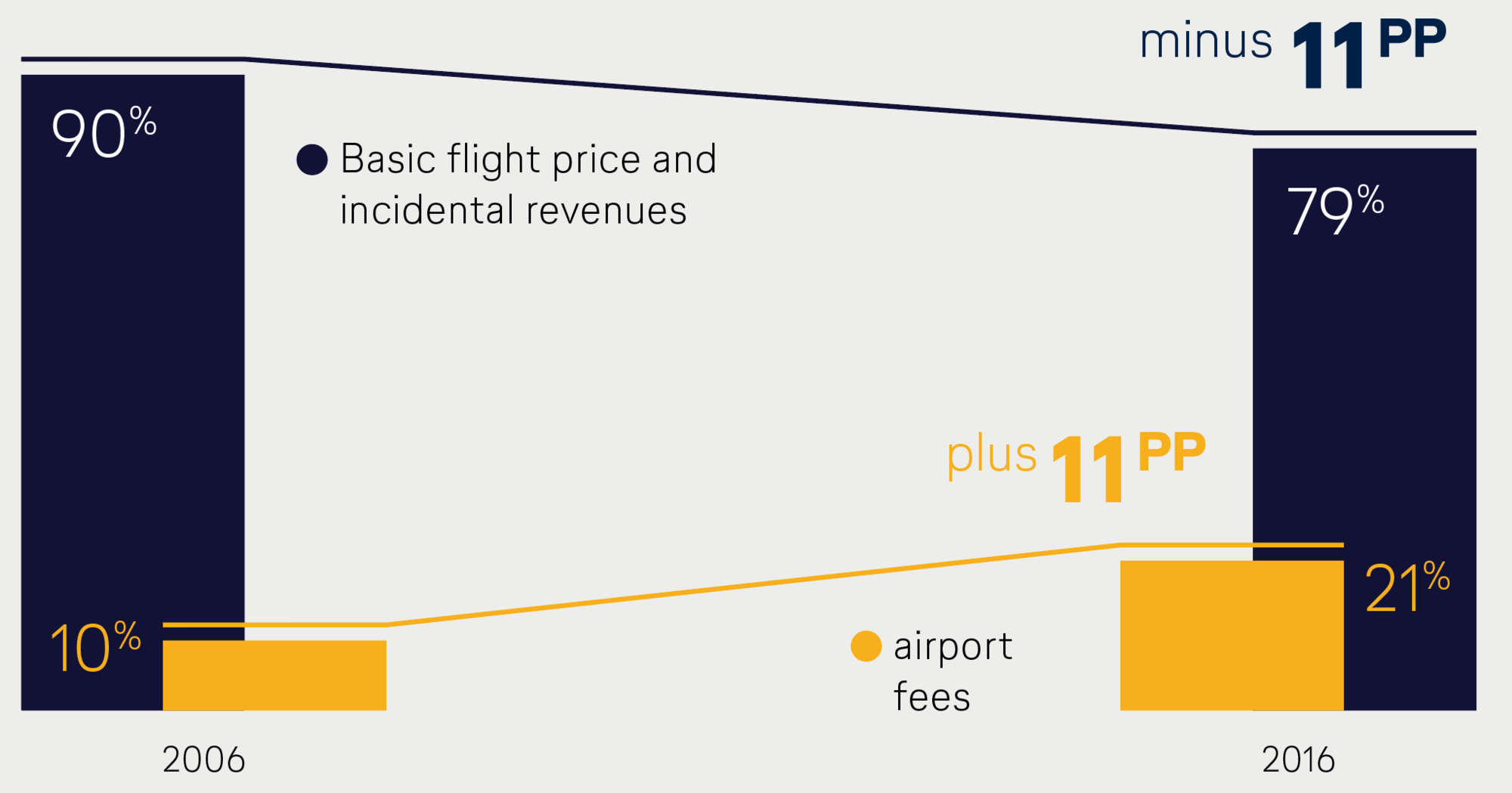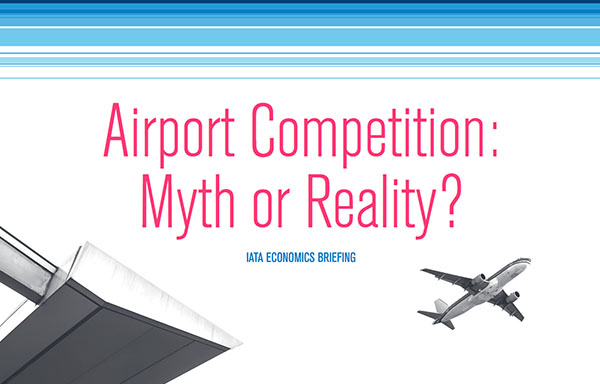Airports
regulation is needed
Guest article by Paul A. Steele, Corporate Secretary, International Air Transport Association (IATA)

Paul Steele
Corporate Secretary, IATA

IATA
The International Air Transport Association (IATA) represents 280 airlines from 120 countries. Their members handle around 83 percent of air traffic worldwide. In 2016, they:
- transported 2.6 billion people
- transported 50 million metric tons of air
- freightcovered 5.6 trillion passenger kilometers
“Airlines are subjected to an enormous amount of pressure from competitors. Many of the large airports have things somewhat easier, however. At the end of 2017, as the world's largest airline association, we carried out an evaluation using an extensive volume of data. The bottom line – countless major airports are able to exercise a significant degree of market power. We are asking our politicians to harness this power through a fair system of regulation.
The airlines have very little freedom in their choice of destination airports. Firstly, in order to run a profitable operation, they have to respond to the preferences of their passengers. They will otherwise lose customers and will be operating flights that are only half-full. Secondly, it is extremely costly to relocate long-haul flights—which are linked with countless feeder flights—to any great extent or even completely. Thirdly, the capacities of potential alternative locations are limited. Overall, this has led to a situation in which the major airports have a significant degree of market power.
Evidence of this can be seen in the disproportionate increases in airport charges. Our analysis has shown that, between 2006 and 2016, the proportion of airport fees in ticket prices more than doubled. If these had remained constant in the same period, the consumer would have been able to save an average of EUR 17 per flight. At the end of the day, it is the consumer who loses out.
Where balancing market mechanisms are not effective, then politicians need to take action in the interest of the location in question. We expressly advocate a 3-tier regulatory system depending on the level of market power of the particular airport. In accordance with this, airports with a good deal of market power would be comprehensively regulated by an independent body. A possible candidate for Germany would, for example, be the Federal Network Agency who have for many years ensured fair conditions for those participating in sectors such as rail, post and telecommunications. With airports which only have a moderate degree of market power, this is not so necessary. In this case, it would be sufficient for stricter EU guidelines to be adopted than those in use to date. For the remaining, mostly smaller airports, the existing EU and international provisions are adequate.
Through their passengers, the airlines bring the airports millions of euros in commercial revenues. This needs to be taken into consideration in the airport fees which are ultimately paid by the passengers in their ticket prices.”
Airport charges are increasing at a clearly disproportionate rate

Source: IATA 2017

Paul Steele
Corporate Secretary, IATA

IATA
The International Air Transport Association (IATA) represents 280 airlines from 120 countries. Their members handle around 83 percent of air traffic worldwide. In 2016, they:
- transported 2.6 billion people
- transported 50 million metric tons of air
- freightcovered 5.6 trillion passenger kilometers
Further content on the topic
Document
Airport Competition: Myth or Reality?
At the end of 2017, the International Air Transport Association (IATA) published a comprehensive paper on the market power of airports. The IATA justifies in it its push for a three-tier regulation of the airports.
